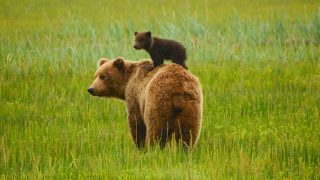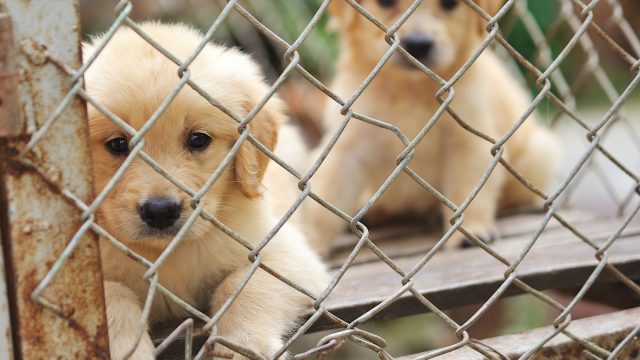
Where Are They Now? Spotlight on Raj Reddy
In this continuing series of updates on former Student Animal Legal Defense Fund (SALDF) members, the Animal Legal Defense Fund is proud to spotlight graduates protecting animals through the legal system.

I enjoy working in a field that’s rapidly developing and incredibly complex. More than that, though, it’s refreshing to work with people who’ve dedicated their careers—some of them, even their lives—to advancing the interests of a group they don’t belong to.
-Raj Reddy
1) Where did you go to law school and when did you graduate?
I attended Lewis & Clark Law School and graduated with the 2017 J.D. class.
2) Current position and organization:
Visiting professor and interim director of the Animal Law LL.M. Program at the Center for Animal Law Studies (CALS) at Lewis & Clark Law School in Portland, Oregon.
3) How long have you been in your current position?
Eight months.
4) What do you do in your current position?
I teach a slate of animal law courses, including: Animal Law Fundamentals, Animal Legal Philosophy & Development, International Animal Law (an online offering), and our Graduate Animal Law LL.M. Seminars I & II. As the head of our LL.M. program, I promote animal law education, guide our domestic and international students through our advanced animal law degree program, and tackle a range of administrative duties.
5) Have you had any other work experiences in animal law (or animal protection generally) since graduating law school?
I’m a relatively recent graduate and so haven’t cultivated much experience outside of my work at CALS. That said, I’ve recently joined the Animal Law Conference planning committee and become a board member of Minding Animals International.
6) When did you take an interest in helping animals?
It was relatively later in life. I’d always been introspective as a kid, and I’d often pause to reflect on whether my actions had been faithful to the ethical framework I wanted to live by. I became a vegetarian in college, but I wouldn’t say that I had a real interest in helping animals even then. That advocacy started to take shape only after I went to graduate school for English and Creative Writing. It was during my final semester as a graduate instructor that I got a chance to teach a section of a course called Ethical Animals: Animal Literature and the Human Condition. The course encouraged students to consider why authors like Franz Kafka in “The Metamorphosis” and Art Spiegelman in “Maus” chose to anthropomorphize animals as a means to articulate human experiences, oftentimes those of discrimination and class exploitation. By design, the final weeks of the course fostered discussions as to whether the line that our authors had blurred by giving voice to animals likewise required us to reconsider their treatment as property with only meager protections and no legal rights. Although students enjoyed these conversations, the consensus held that while animals could indeed be used to convey human suffering and suffered in many of the same ways themselves, they were nevertheless not human and therefore did not merit similar considerations. For most, the line between humans and animals had been maintained, if not reinforced. That this was how the class concluded nagged at me for years, and I increasingly found the interests of animals becoming a fundamental part of my moral framework.
7) What did you study in undergrad, and what school did you attend?
My undergraduate major was English, and I graduated from the University of Texas at Austin.
8) What got you interested in pursuing a law degree?
I entered into a Ph.D. program after completing my master’s program and happened to take a Postcolonial Literature and Human Rights seminar. Reading the novels for the course, a troublesome narrative began to reveal itself to me. What the stories illustrated was how colonial forces branded distant groups as animals—whether as beasts, barbarians, savages, or otherwise—as a means to justify their exploitation. It was against this disenfranchisement that the texts’ protagonists seemed to do one of two things: either mimic the language, religion, clothing, and traditions of the colonizer in an attempt to shed the animal labels placed on them; or assert how their own traditions, language, culture, and so on attested to their inherent humanity. For most in the class, this was where the discussion ended. But for me, this was where a larger, much more productive conversation needed to take place. Put simply, because the novels focused only on how marginalized groups had to distinguish themselves from animals in order to gain legal recognition, they were working to further entrench the commodity status of animals. It was during that semester that I realized I had to look elsewhere to effect the change I knew needed to take place. A degree in animal law revealed itself as being that conduit for me.
9) When you were involved with SALDF, what position(s) did you hold and what sort of activities and events did you help with and/or spearhead?
I served as the treasurer for Lewis & Clark’s SALDF chapter during the first year of my J.D. program. My second year saw me take on the role of co-director. That year, we brought a dozen or so speakers to campus. Our chapter also put together numerous other events, including a farm sanctuary work day for forty-plus people, followed by a camping social. In October, we co-hosted the 23rd Annual Animal Law Conference and held our annual SALDF potluck social. In January, our group took a private tour of the Wolf Haven Sanctuary in Tenino, Washington. That semester also saw us hold our annual Animal Law Networking and Meatout events, and we closed the year by co-hosting the Human-Animal Studies conference at Lewis & Clark. In recognition of our efforts, we were awarded the SALDF Chapter of the Year Award.
10) How did being involved with SALDF play a role in your education and career?
I came to Lewis & Clark specifically for its animal law program, but I wasn’t able to take anything outside of general courses my first year. As such, SALDF was the only way to get involved from day one. SALDF allowed me to cultivate relationships with attorneys in the Portland area. It also paved the way for me to join the Animal Law Conference planning committee, through which I was able to develop connections with a range of animal law attorneys worldwide.
11) Any other noteworthy law school experiences, internships, etc.?
I consider myself lucky in that Lewis & Clark’s Animal Law Program offered me numerous opportunities to get involved in the animal law field while still a student. In addition to my capacity as a board member of the Lewis & Clark SALDF chapter, I also worked as a clerk and research assistant for the Center for Animal Law Studies during the three years of my J.D. program. I gained invaluable experience with the Animal Law Review, having begun as a source checker my 1L year, then taking on the roles of managing editor and finally co-editor in chief in my 3L year. I was also able to serve as student coordinator of the 23rd Annual Animal Law Conference, which focused on international developments in the animal law field. Finally, I was lucky to secure a clerkship with the Animal Legal Defense Fund’s Criminal Justice Program during my 2L summer.
12) What do you hope to accomplish in your work for animals (and/or is there an accomplishment thus far you are particularly proud of)?
There are so many things. I’ve always considered myself an educator. I love working with students and teaching animal law, which I hope to further develop and make mainstream. I don’t know if I’ve reached any milestones yet in my current roles, but I do hope to look back someday and see a few things I’ve done as having been stepping stones to achieving something significant for animals, human and nonhuman alike.
13) What has been your biggest challenge? Anything you’ve learned that you would like to share with others considering a similar path?
As my responses demonstrate, I have a deep love of literature and creative writing, and finding time to devote to that part of my life and braiding it with my interest in animal law has proved a challenge. But it’s certainly worth the time and effort, and I’d strongly encourage others to create time and space for whatever else it is that they love in life.
14) What do you like best about working in this field?
I enjoy working in a field that’s rapidly developing and incredibly complex. More than that, though, it’s refreshing to work with people who’ve dedicated their careers—some of them, even their lives—to advancing the interests of a group they don’t belong to.
15) What advice would you give law students who are considering a career in animal law?
The best advice I’ve received and so will repeat here is that there are numerous ways to practice animal law. It doesn’t have to be one full-time job. It can be a passion fulfilled in other ways. To that end, I’d encourage students to seek out those other paths that will enable them to braid their investment in animal law with other interests in their life.
How We Work
Recent News
-
Petition: Protect Wyoming’s Wildlife from Cruelty
Take action for animals by signing your name to the petition demanding Wyoming update its animal cruelty laws to better protect wildlife. -
Have you purchased Perdue Farms ‘Fresh’ or ‘Fresh Cuts’ products?
The Animal Legal Defense Fund is looking for supporters who believe they purchased Perdue Farms “Fresh” or “Fresh Cuts” products. Please provide as much detail as possible and — if you qualify — someone from our…
-
New Jersey: Stop Cruel Puppy Mills
Urge New Jersey lawmakers to support S.2511/A.4051, a state bill to protect animals from commercial breeding mills and stop the puppy-mill-to-pet-store pipeline into New Jersey.



